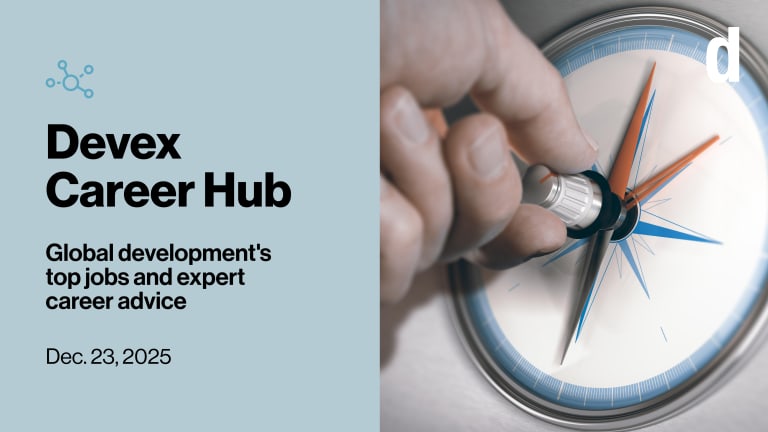A master’s in public administration — which typically focuses on management and implementation — or a master’s in public policy, which has a heavier emphasis on policy and analysis, are popular degree choices for people wanting to pursue a career in public service such as international development.
In fact, global leaders like United Nations Secretary-General Ban Ki-Moon and former head of the World Bank Robert Zoellik hold an MPA and an MPP, respectively.
In a survey of international development recruiters Devex conducted earlier this year, 17 percent identified an MPA or MPP as the most in-demand degree for their hiring needs this year.
This article is exclusively for Career Account members.
Unlock this article now with a 15-day free trial of a Devex Career Account. With a Career Account subscription you will get:
- Full access to our jobs board, including over 1,000 exclusive jobs
- Your Devex profile highlighted in recruiter search results
- Connections to recruiters and industry experts through online and live Devex events
Read more career advice articles:
● 8 things to consider before pursuing a graduate degree
● Want to work in monitoring and evaluation? Start with these 5 skills
● Researching global development graduate programs? Ask these 8 questions
● MBA to international development: Career transitions for business majors








